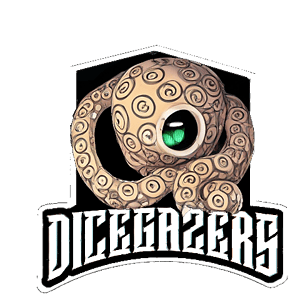Tabletop roleplaying games (RPGs) are immersive storytelling adventures. One core element that adds excitement is the act of rolling dice. Understanding dice rolling in TTRPGs(tabletop RPGs) is essential for new and experienced players to fully grasp the mechanics. In this guide, we’ll delve into the intricacies of dice rolling, from the basics to advanced techniques.

How Can I Improve My Dice Rolling Luck?
This is the FAQ you are really looking for so here it is right up front. Dice rolls are ultimately based on probability and chance. There are a few tips that players can keep in mind to potentially improve their luck:
- Use well-balanced dice: Buy high-quality dice that have been tested for balance to ensure a more random outcome.
- Roll with confidence: When rolling the dice, put aside what you “want to happen” and what you “think should or will happen”. Having a negative image of how things will go only sets you up for disappointment, which you then usually beat yourself up over later.
- Stay focused and relaxed: Clearing your mind of distractions and being in the moment to “see what happens” will help you accept your roll. Whatever happens, take it in stride and go with it. Remember, whatever happens, is about your character NOT YOU.
The Basics: How Dice Rolling Works
At the heart of why tabletop RPGs use dice rolling is to create some unpredictability. This is done through player character actions either with skills, spells, abilities, or others based on the game. The most common types of dice rolled are the four-sided die (d4), six-sided die (d6), eight-sided die (d8), ten-sided die (d10), twelve-sided die (d12), and twenty-sided die (d20). Each has a specific purpose and is used differently during gameplay.
Rolling the Dice
When a player wants to do something that requires a dice roll, they tell the Game Master. He or she in turn then decides what dice need to be rolled. Most of the time it’s pretty straightforward as a skill listed on a character sheet. The GM then usually just says “Roll for it”, though sometimes there may be factors leading to a bonus or negative to the roll.
The player then picks up the stated dice, shakes them in their hand, and rolls them onto a flat surface (dice mats, dice towers, trays, and other options can also help like in small areas, cramped tables, etc, but aren’t required). The outcome of their action is determined by the number listed on the face of the die that lands up.
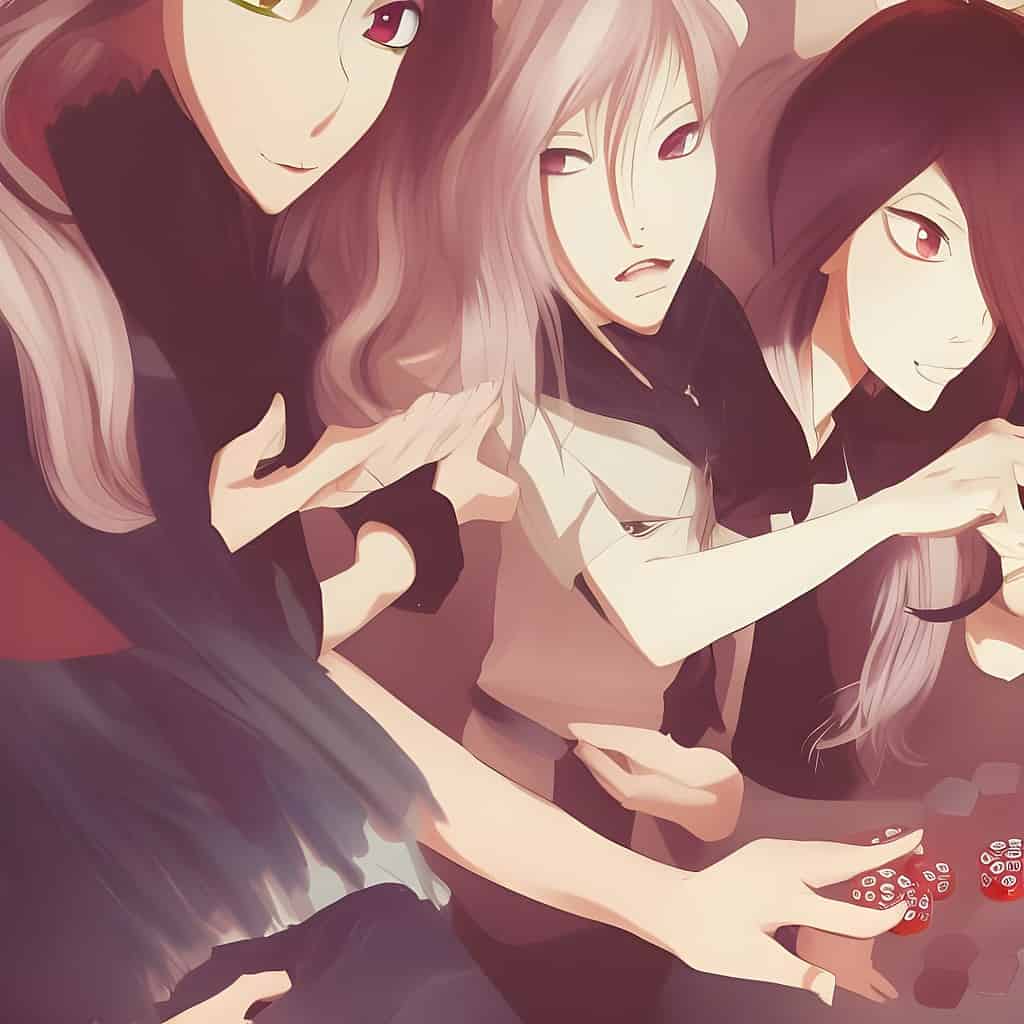
Modifiers and Bonuses
As mentioned above, modifiers can apply to dice rolls. These modifiers come from many sources, the most common are character bonuses like feats, spells, or items. Other modifiers occur based on the environment like rain, strategic positionings such as high ground or flanking, and others. Sometimes unknown modifiers are applied that a player doesn’t know the source of.
Modifiers can be positive or negative and affect the outcome of an action. Some flaws for example give players negative modifiers that they chose as character background. No matter what modifiers you have though, if the GM says it didn’t succeed don’t get upset, get ready to learn more about your opponents or story.
Critical Hits and Failures
Many RPGs have a rule where if you roll the max number on a die it is a critical hit (e.g., a 20 on a d20). Some games also have the opposite rule, the lowest number on a die roll is a critical failure (e.g., a 1 on a d20).
In very few RPGs a critical failure is also referred to as a fumble. While many games consider a natural 1 to be an automatic fail, a fumble has additional (often extreme) negative consequences.
Critical hits often create a wave of excitement, sometimes an exclamation of joy, while critical failures often stifle player action. Some may consider critical failures necessary if you have crit hits, but that hasn’t been my experience (to each their own). The above information about understanding dice rolling in tabletop roleplaying games is enough for most to get started, for those that like probability and strategy read on.
Advanced Techniques: Probability and Strategy
While understanding probability won’t allow you to get the roll you want all the time, it may help from time to time. Here are some concepts to consider.
Probability and Odds
Tabletop RPG dice rolls are based on probability. Probability is the likelihood that something is going to occur. With a well-balanced die, the probability for any side to roll is the same. For example, when rolling a d20 the probability for a 10 is 1 in 20 or 5%, but so it is for all other numbers.
Now you can increase the probability of a winning roll through the use of bonuses or other modifiers. Stacking up spells, getting an environment bonus, and/or being clever with the use of your roll can affect the outcome, regardless of the number often called min-maxing/optimization.
Probability can be taken advantage of by using it more often. Without getting really in-depth here, think of it like this: the times you get in a place to use a specific skill, spell, etc the more you increase the probability of having the number you want to show up.
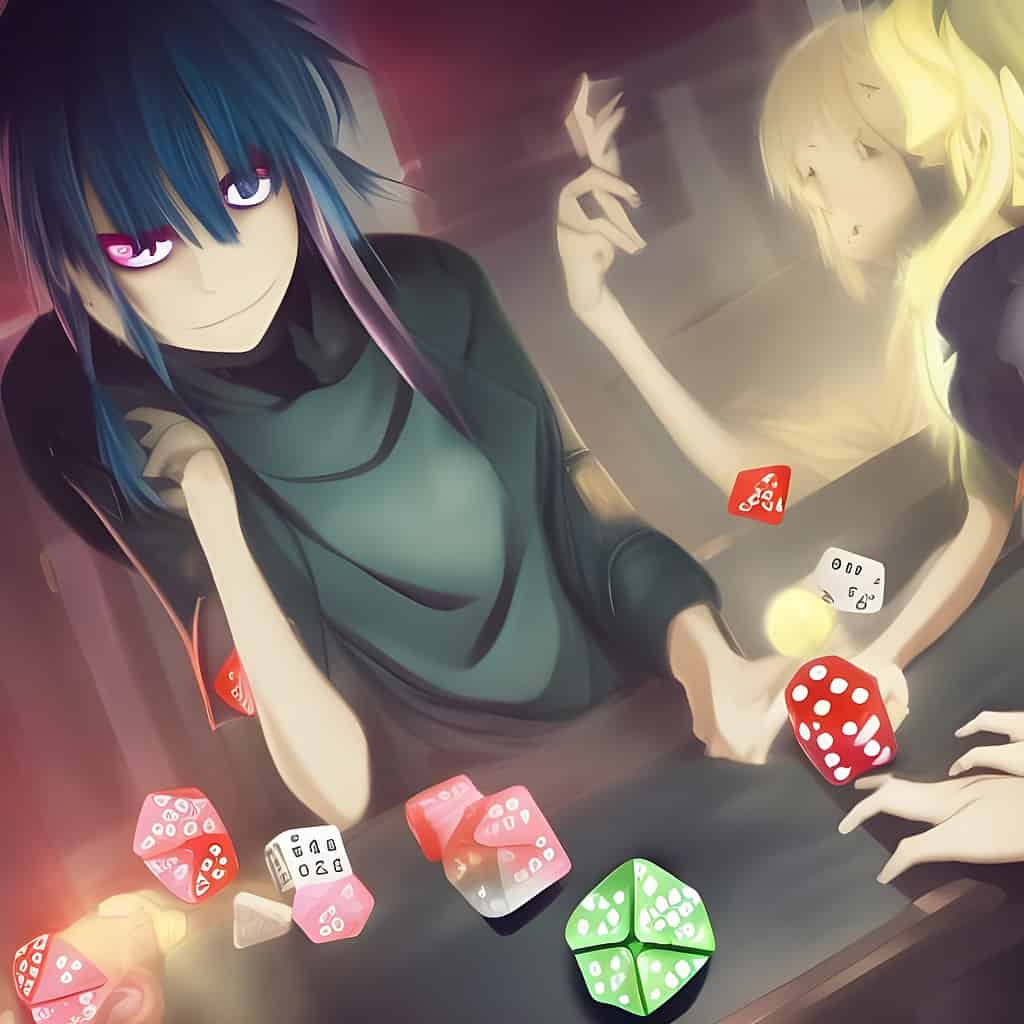
Min-maxing and Optimization
As a player you have little control of the result of your die roll. So to help determine the outcome of the roll, you can optimize your character or you can min/max.
Optimizing your character is simply building your character’s stats, abilities, equipment, and skills all to complement each other. This is often done in a group where everyone is trying to complement the other players by picking up all the roles like tank, healer, dps, etc.
Min-maxing is the deliberate attempt of finding loopholes, or even fudging stats to get extreme bonuses for specific purposes. Most commonly min-maxing is done to get really high attack roll bonuses for the character in mind (ranged, melee, daggers, polearms, etc.).
Min-maxing can be frowned upon depending on the group you are in. For example, the fighter that drops their intelligence, wisdom, and charisma so they can get extra stat points for strength may seem overpowered by some people.
In my experience, this is not nearly as big a deal as it may seem at first glance. Just because a fighter is good at swinging a sword, doesn’t mean he or she can solve a puzzle well. The mage with 1000 spells can’t cast them all at once and can be overrun. If your player wants to excel at something let them, just make sure they also understand they have weaknesses in other areas.
Learn to improve your storytelling for tabletop RPGs.
Risk vs. Reward
Dice rolling in tabletop RPGs is only one part of a skill roll. It’s the part you can’t really control, what you can control are your actions and a character sheet. Assessing the risk vs. rewards of your actions can help you get the most out of each action.
If you have optimized your character, maybe even have a couple of extra bonuses it may be a good time to take a risky action. Conversely, if things are going against you it may be a good idea to be conservative, taking less risk for a lesser reward. Doing so until you position yourself, or your group to turn the tables in the story.
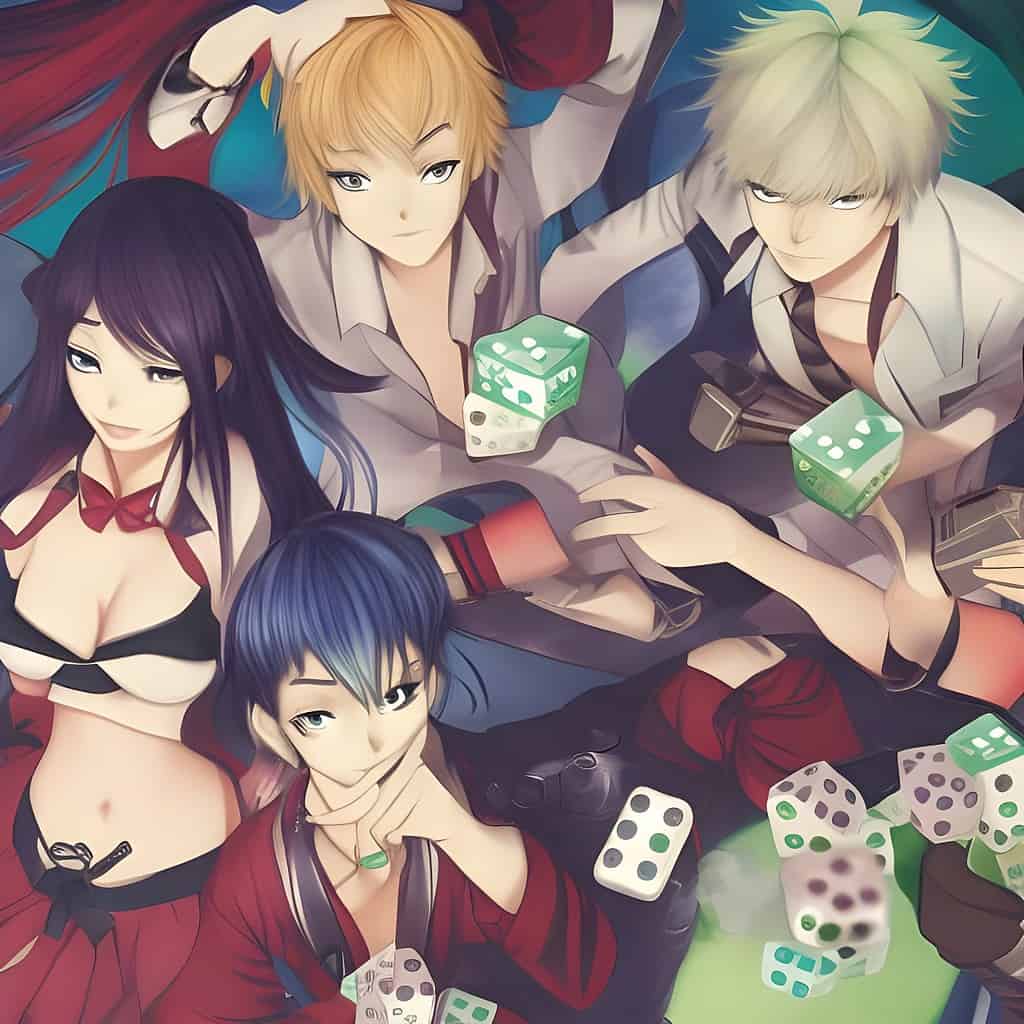
Common FAQs: Clarifying Misconceptions
Misconceptions and questions will always pop up about dice rolling in tabletop RPGs (and other areas). Whether you are new or experienced you’ll inevitably forget things, have new rules introduced, and many other factors that create confusion. Let’s cover some of the common FAQs:
Are Dice Rolls Purely Random?
Dice rolls are designed to be an element of randomness in a game that sort of plays on our natural fear of loss, and fear of missing out (ya and some other psychological aspects). Getting that natural 20 exactly when you need it can create a large feeling of specialness, comradery, and just pure fun. That’s what using dice helps introduce.
As to the actual act of rolling dice, not all dice are created equal. The quality of your dice can make for more or less random rolls. Some people intentionally shave off parts of their dice so they roll certain numbers more often. Or you might get plastic dice that have air pockets within them making them lighter on one or more sides and also changing the way they roll.
The most common plastic dice usually have rounded corners, this is a sign of the lowest quality dice. Essentially the manufacturer takes lots of dice at once and puts them in a machine that tumbles them to remove pieces from manufacturing. In doing so it causes them to roll on the table far more than dice with sharp edges.
If you want to reduce your chances of having players cheat their dice rolls you can opt for balance testing the dice. You could also use a digital dice roller such as from virtual tabletops like Roll20. I prefer to use dice when in person with a group and a dice roller when playing online.
Can You Cheat or Manipulate Dice Rolls?
Im, sure there are more ways to cheat than shaving your dice, but I’m not interested in bringing that up. It is generally frowned upon by groups as random chance is part of roleplaying. If you aren’t there to see the outcome regardless of what it is then why are you roleplaying?
Remember that tabletop roleplaying games’ main goal is that of collaborative storytelling and shared experience. Cheating dice rolls removes the imagination part of it and undermines the game’s integrity. If you are just there “to win” you’ve already lost.
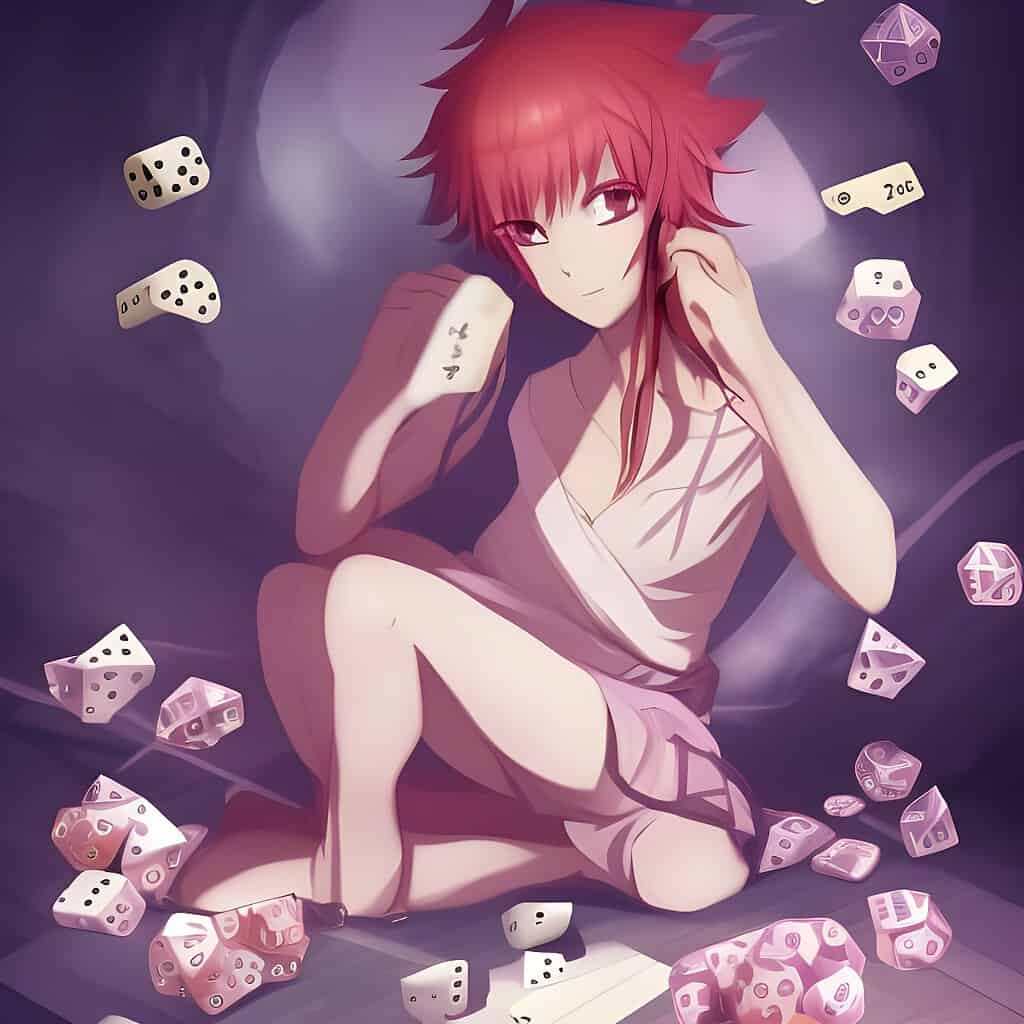
Pros and Cons of Dice Rolling in Tabletop RPGs
As a recap/conclusion here I want to put what has been discussed into a pros and cons section for dice rolling in tabletop RPGs. It will be a quick summary in two list sections for the positives and negatives.
Pros
- Element of randomness: Dice rolling introduces an element of randomness where the outcome of a roll is unpredictable. This makes rolls exciting and adds unique story moments.
- Player agency: Players have a lot of control over their character build, skills, and choices in their use. Rolling dice in a situation that seems impossible can help players feel they have control over what happens in the world too.
- Strategic decision-making: Understanding probability and making strategic choices adds depth and complexity to gameplay, challenging players to think critically and strategize.
- Immersion: The tactile experience of rolling dice and waiting for the outcome with others looking on, adds to the immersion of the game.
Learn how to be more descriptive with clues in your tabletop RPG game.
Cons
- Unpredictability: The randomness of dice rolling will result in unexpected outcomes, which may frustrate players or disrupt the flow of the game.
- Imbalance: Imperfect dice or unbalanced mechanics can lead to unfair outcomes, disrupting the game’s fairness and integrity.
- Cheating or manipulation: Players may be tempted to cheat or manipulate dice rolls. Which undermines the spirit of fair play and overall enjoyment of the game.
- Limited control: Players have limited control over the outcome of the roll, which will require them to make new or alter their plans/goals.
